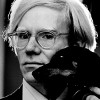“ the more pleasant activity drives out the other, and if it is much more pleasant does so all the more, so that one even ceases from the other. This is why when we enjoy anything very much we do not throw ourselves into anything else, and do one thing only when we are not much pleased by another ”
Aristotle, Nicomachean Ethics (c. 334 BC - 330 BC). copy citation
| Author | Aristotle |
|---|---|
| Source | Nicomachean Ethics |
| Topic | activity |
| Date | c. 334 BC - 330 BC |
| Language | English |
| Reference | |
| Note | Translated by W. D. Ross |
| Weblink | http://classics.mit.edu/Aristotle/nicomachaen.mb.txt |
Context
“For people who are fond of playing the flute are incapable of attending to arguments if they overhear some one playing the flute, since they enjoy flute-playing more than the activity in hand; so the pleasure connected with fluteplaying destroys the activity concerned with argument. This happens, similarly, in all other cases, when one is active about two things at once; the more pleasant activity drives out the other, and if it is much more pleasant does so all the more, so that one even ceases from the other. This is why when we enjoy anything very much we do not throw ourselves into anything else, and do one thing only when we are not much pleased by another; e.g. in the theatre the people who eat sweets do so most when the actors are poor. Now since activities are made precise and more enduring and better by their proper pleasure, and injured by alien pleasures, evidently the two kinds of pleasure are far apart.”
source


